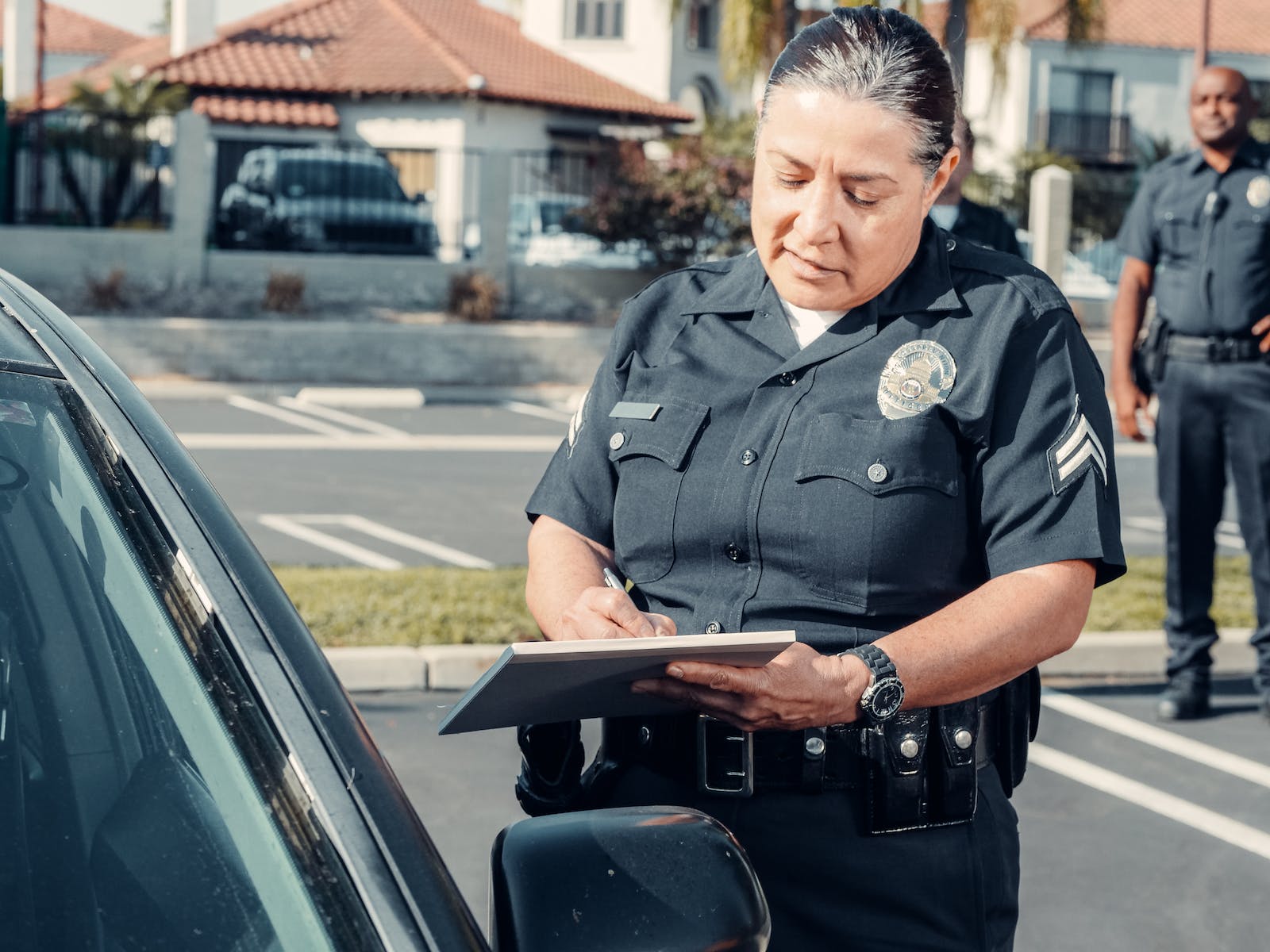Traffic violations can have a significant impact on individuals and businesses alike. Understanding the common traffic violations is crucial, as it not only helps individuals stay on the right side of the law but also assists businesses in navigating the legal landscape, ensuring compliance and safeguarding their reputation. In this blog, we will provide valuable insights into the most prevalent traffic violations and their consequences, empowering you to make informed decisions.
At Strategic Lawyers, we take pride in being the foremost legal authority on traffic law in Townsville, Queensland, Australia. With years of experience and a team of dedicated professionals, we have built a reputation for delivering expert legal advice and representation in the complex world of traffic violations.
It’s crucial for businesses to educate their employees about the potential ramifications of traffic violations, emphasising the importance of compliance with traffic laws to protect their interests.
Common Traffic Violations
Speeding Offences
Different Speed Limits in Various Road Types
Understanding speed limits in various road types is essential for both individuals and businesses to avoid speeding offences. In Townsville, QLD, Australia, speed limits are typically categorised into the following road types:
- Residential Areas: In residential zones, the speed limit is often set at 50 kilometres per hour (km/h). These areas include streets with houses, schools, and pedestrian traffic.
- Urban Areas: Within town and city boundaries, the speed limit usually ranges from 50 km/h to 60 km/h, depending on local regulations and road conditions.
- Rural Roads: On roads outside urban areas, the speed limit can vary. Most rural roads have a default limit of 100 km/h, but this can change depending on signage and road conditions.
- Highways and Motorways: On highways and motorways, the speed limit is typically set at 110 km/h, but there may be variations and reduced limits in construction zones or due to adverse weather conditions.
Tips on How to Avoid Speeding Tickets
To help individuals and businesses avoid speeding tickets and the associated penalties, here are some valuable tips:
- Familiarise Yourself with Speed Limits: Always be aware of the posted speed limits on the roads you are driving on, and adjust your speed accordingly.
- Use GPS and Speed Apps: Many GPS navigation systems and smartphone apps provide real-time speed limit information, helping you stay within legal limits.
- Maintain a Safe Following Distance: Keep a safe following distance between your vehicle and the one in front to allow for sudden stops or speed limit changes.
- Watch for Speed Limit Signs: Pay close attention to speed limit signs, especially when transitioning between different road types.
- Drive to Conditions: Adjust your speed in adverse weather conditions or when road visibility is poor to ensure safe driving.
- Regular Vehicle Maintenance: Ensure your vehicle is in good condition, as it’s easier to control at higher speeds when properly maintained.
By following these tips and respecting speed limits, individuals and businesses can minimise the risk of speeding offences, protect their finances, and prioritise safety on the road.
Red Light Violations
Obeying traffic signals, including red lights, is paramount for road safety. Traffic signals are in place to regulate the flow of vehicles, prevent accidents, and protect the lives of all road users. Running a red light jeopardises not only your safety but also the safety of pedestrians and other drivers. By obeying traffic signals, individuals and businesses demonstrate their commitment to road safety and legal compliance.
Scenarios Where Red Light Violations Commonly Occur
Red light violations often occur in specific scenarios, including:
- Intersection Confusion: Some intersections may have complex signal configurations or unclear signage, leading to confusion among drivers.
- Rush Hour Traffic: Impatient drivers during rush hour may be more likely to run red lights when they are eager to get through an intersection.
- Distracted Driving: Distracted drivers who are not paying full attention to the road may miss red lights.
- Yellow Light Misjudgment: Some drivers may attempt to beat a yellow light but end up running a red light instead.
To avoid red light violations, it’s crucial to stay alert, adhere to traffic signals, and exercise patience, especially in high-traffic areas.
Mobile Phone Use while Driving
Dangers of Using Mobile Phones Behind the Wheel
Using mobile phones while driving poses significant dangers to road safety. It diverts a driver’s attention away from the road, resulting in:
- Decreased Reaction Times: When using a mobile phone, drivers have slower reaction times, making it difficult to respond to sudden changes in traffic conditions.
- Impaired Judgement: Engaging in phone conversations or texting can impair a driver’s judgement, causing them to make risky decisions.
- Increased Risk of Accidents: Drivers using mobile phones are more likely to be involved in accidents, including rear-end collisions, side-swipes, and lane departures.
- Loss of Focus: The cognitive load of processing information on the phone competes with the cognitive tasks of driving, leading to a decrease in overall focus.
Alternatives for Staying Connected Safely
To stay connected safely while driving, consider these alternatives:
- Bluetooth Hands-Free Systems: Many vehicles come equipped with Bluetooth technology that allows for hands-free phone calls and text messaging.
- Smartphone Apps: Utilise smartphone apps designed for safe driving, such as those that read aloud text messages or provide voice commands for calls.
- Pull Over Safely: If a call or text is urgent, find a safe place to pull over and respond.
- Designated Passengers: When possible, designate a passenger to handle calls or messages while you focus on driving.
Prioritising road safety by avoiding mobile phone use while driving is essential for both individuals and businesses. It helps protect lives, reduces legal and financial risks, and promotes responsible driving habits.
Driving Without Insurance
In Townsville, Queensland, Australia, car insurance is a legal requirement for all registered vehicles. The minimum compulsory insurance is known as “Compulsory Third Party (CTP) Insurance,” which covers injury or death caused by your vehicle in an accident. Additionally, drivers are encouraged to consider optional comprehensive insurance to cover damage to their own vehicle and property.
Finding Affordable Insurance Options
To find affordable insurance options in Townsville:
- Compare Quotes: Shop around and obtain quotes from different insurance providers to find the best rates.
- Consider Deductibles: Opting for higher deductibles can lower your insurance premiums, but be sure you can afford the deductible in case of a claim.
- Bundle Policies: If you have multiple vehicles or insurance needs, consider bundling them with the same insurer for potential discounts.
- Safe Driving Record: Maintaining a clean driving record can help lower insurance premiums over time.
Parking Offences
Common Parking Violations
Parking offences encompass a range of violations, including parking in restricted areas such as disabled parking spaces, bus stops, fire zones, and loading zones. These violations disrupt traffic flow, hinder emergency response, and inconvenience other road users.
Tips on Responsible Parking
Responsible parking helps maintain order on the roads:
- Obey Signs and Markings: Always adhere to parking signs and pavement markings. They provide essential information about where you can and cannot park.
- Plan Ahead: Before heading to your destination, research parking options and ensure you are aware of any time limits or restrictions.
- Use Parking Facilities: Whenever possible, use designated parking lots and garages to avoid parking violations.
- Respect Disabled Parking Spaces: Only park in disabled spaces if you have a valid permit. These spaces are reserved for those who truly need them.
- Avoid Blocking Traffic: Ensure your vehicle is not obstructing traffic flow, pedestrian walkways, or emergency zones.
By following traffic laws, individuals and businesses contribute to a safer and more harmonious community.
Penalties for Traffic Violations
Traffic violations can lead to a range of penalties, which may vary depending on the severity of the offense and local regulations. It’s essential to be aware of these potential consequences to make informed decisions on the road.
- Fines: Most traffic violations come with fines, the amount of which depends on the specific violation and location. These fines can range from relatively minor to substantial, impacting your finances.
- Demerit Points: Many jurisdictions use demerit point systems. When you commit a traffic violation, demerit points may be added to your driving record. Accumulating too many points can result in the suspension or revocation of your driver’s license.
- License Suspension or Revocation: Certain traffic violations, particularly those involving excessive speeding, drink driving, or reckless behavior, can lead to immediate suspension or revocation of your driver’s license.
- Legal Consequences: In some cases, traffic violations can result in criminal charges. This is more likely when violations lead to accidents causing injuries or fatalities, or when they involve actions such as reckless driving or driving without insurance.
- Increased Insurance Premiums: Traffic violations can also lead to higher insurance premiums for both individuals and businesses with vehicle fleets.
Legal Assistance from Strategic Lawyers
At Strategic Lawyers, we are experts in handling traffic law cases. Our experienced legal team understands the complexities of traffic violations and can provide you with expert guidance and representation. Whether you’re dealing with a speeding ticket, a drunk driving charge, or any other traffic-related legal issue, we have the knowledge and experience to assist you effectively.
For personalised legal assistance and expert advice on traffic law matters, visit our website at https://strategiclawyers.com.au/. We’re here to help you navigate the legal landscape and achieve the best possible outcome for your case.






